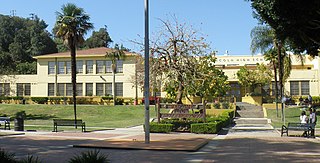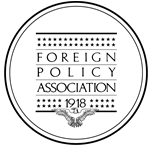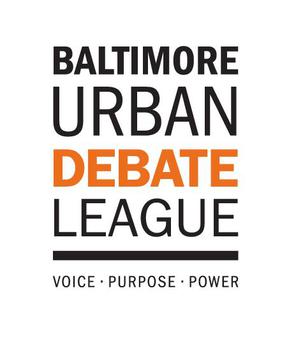
A community college is a type of undergraduate higher education institution, generally leading to an associate degree, certificate, or diploma. The term can have different meanings in different countries: many community colleges have an "open enrollment" for students who have graduated from high school. The term usually refers to a higher educational institution that provides workforce education and college transfer academic programs. Some institutions maintain athletic teams and dormitories similar to their university counterparts.

Model United Nations, also known as model UN or MUN, is an educational simulation in which students learn about diplomacy, international relations, and the United Nations. At a MUN conference, students work as the representative of a country, organization, or person, and must solve a problem with other delegates from around the world. MUN teaches participants skills like research, public speaking, debating, and writing, in addition to critical thinking, teamwork, and leadership. While MUN is typically used as an extracurricular activity, some schools also offer it as a class. MUN is meant to engage students, and allow them to develop deeper understanding into current world issues and world politics.
A student society, student association, university society, student club, university club, or student organization is a society or an organization, operated by students at a university or a college institution, whose membership typically consists only of students and/or alumni.
Lincoln–Douglas debate is a type of one-on-one competitive debate practiced mainly in the United States at the high school level. It is sometimes also called values debate because the format traditionally places a heavy emphasis on logic, ethical values, and philosophy. The Lincoln–Douglas debate format is named for the 1858 Lincoln–Douglas debates between Abraham Lincoln and Stephen A. Douglas, because their debates focused on slavery and the morals, values, and logic behind it. LD debates are used by the National Speech and Debate Association, or NSDA competitions, and also widely used in related debate leagues such as the National Christian Forensics and Communication Association, the National Catholic Forensic League, the National Educational Debate Association, the Texas University Interscholastic League, Texas Forensic Association, Stoa USA and their affiliated regional organizations. The vast majority of tournaments use the current NSDA resolution.
Policy debate is an American form of debate competition in which teams of two usually advocate for and against a resolution that typically calls for policy change by the United States federal government. It is also referred to as cross-examination debate because of the 3-minute questioning period following each constructive speech. Evidence presentation is a crucial part of Policy Debate. The main argument being debated during a round is to change or not change the status quo. When a team explains why their solvency is greater than the opposition's, they compare advantages. One team’s job is to argue that the resolution— the statement that we should make some specific change to a national or international problem —is a good idea. Affirmative teams generally present a plan as a proposal for implementation of the resolution. On the other hand, the Negative teams present arguments against the implementation of the resolution. In a single round of debate competition, each person gives two speeches. The first speech each person gives is called a “constructive” speech, because it is the speech when the first speaker positively, without rebuttal that has not occurred, presents the basic arguments they will make throughout the debate. The second speech is called a “rebuttal”, because this is the speech were each person tries to rebut the arguments made by the other team, while using their own arguments to try to convince the judge to vote for their team. The Affirmative has to convince the judge to vote for the resolution, while the Negative has to convince the judge the Negative's position is a better idea.

The College Preparatory School is a four-year private high school in Oakland, California. The school's motto is Mens Conscia Recti, a Latin phrase adapted from Virgil's Aeneid that means "a mind aware of what is right".
Philosophy for Children, sometimes abbreviated to P4C, is a movement that aims to teach reasoning and argumentative skills to children. There are also related methods sometimes called "Philosophy for Young People" or "Philosophy for Kids". Often the hope is that this will be a key influential move towards a more democratic form of democracy. However, there is also a long tradition within higher education of developing alternative methods for teaching philosophy both in schools and colleges.
Public forum debate is a widespread form of middle and high school competitive debate which centers on current events and relies on both logic and evidence to construct arguments. Invented in the US, Public Forum is one of the most prominent American debate events, alongside policy debate and Lincoln-Douglas debate; it is also practiced in China and India, and has been recently introduced to Romania. Individuals give short speeches that are interspersed with 3 minute "Crossfire" sections, questions and answers between opposed debaters. The winner is determined by a judge who also serves as a referee. The debate centers on advocating or rejecting a position, "resolve", or "resolution", which is usually a proposal of a potential solution to a current events issue. Public Forum is designed to be accessible to the average citizen.
An urban debate league (UDL) is a group of high school policy debate teams from urban high schools in the United States. UDLs are generally located in large cities throughout the United States and work predominantly with minority students.

Tottenville High School is located at 100 Luten Avenue, in Huguenot, Staten Island, New York. Tottenville H.S. is in Administrative District 31, and is operated by the New York City Department of Education. The school's principal is Gina Battista, who assumed the role in 2020.

Abraham Lincoln High School, usually referred to simply as Lincoln High School, is a secondary school located in the Lincoln Heights district of Los Angeles, California, United States. Located in the East Los Angeles-area community, surrounded by El Sereno, Chinatown, Boyle Heights and Cypress Park. The school is named after Abraham Lincoln, the 16th President of the United States, and was one of the first public high schools established in California. It is one of the District 5 high schools in the Los Angeles Unified School District, the second largest school district in the US.

The Foreign Policy Association is a non-profit organization, founded in 1918, dedicated to inspiring the American public to learn more about the world. According to the Foreign Policy Association (FPA), the organization aims to spread global awareness and understanding of US foreign policy and global issues by informing, inspiring, and engaging with the public in community and educational forums. As of 2023, the organization's current President & CEO is Noel V. Lateef, who is also the longest serving President of the Foreign Policy Association.
Angelo Falcón was a Puerto Rican political scientist best known for starting the Institute for Puerto Rican Policy (IPR) in New York City in the early 1980s, a nonprofit and nonpartisan policy center that focuses on Latino issues in the United States. It is now known as the National Institute for Latino Policy and Falcón served as its president until his death. He was also an Adjunct Assistant Professor at the Columbia University School of Public and International Affairs (S.I.P.A.).

The Baltimore Urban Debate League, is an American, non profit, urban debate league that aims to educate and mentor inner city middle school and high school students in the Baltimore, Maryland area.
Model Congress gives students a chance to engage in a role-playing simulation of the United States Congress. Such events are hosted by the Congress itself, Rutgers University, American International College, University of Maryland, Columbia University, Princeton University, the University of Pennsylvania, Yale University, The College of William and Mary, Harvard, Maggie L. Walker Governor's School, Hamburg Area High School, and Northgate High school.
Model Arab League, also known as MAL, is a multi-regional model competition in which high school and university students from across the world learn about and compete as representatives from Member States of the Arab League. Participants are encouraged to use the experience to hone their skills in public speaking and diplomacy, in addition to the primary goal of learning about the politics and history of the Arab world. In the United States, the competitions are administered by The National Council on U.S.-Arab Relations (NCUSAR). Outside the United States, the University of Peloponnese hosts the Corinth Model Arab League and the American University in Cairo hosts the Cairo International Model Arab League (CIMAL).
The Grange P-12 College is a Prep to Year 12 government school located in the outer western suburb of Hoppers Crossing, Melbourne, Australia.

The California Association of Student Councils (CASC) is a non-profit, student-led youth leadership and advocacy organization. Founded in 1947 by the California Department of Education and now-Association of California School Administrators, CASC has provided a multitude of conferences to students, advisors, and professionals in both California and around the world.
The LAMDL, a non-profit organization, is devoted to bringing debate to urban high schools in the Los Angeles area. The LAMDL is part of a “public-private” partnership, relying on financial contributions from private sources and collaboration with the Los Angeles Unified School District (“LAUSD”). LAMDL also works closely with the University of Southern California. Currently, ten high schools are active in the LAMDL. The LAMDL is associated with the National Association for Urban Debate Leagues (“NAUDL”).
Intergroup dialogue is a "face-to-face facilitated conversation between members of two or more social identity groups that strives to create new levels of understanding, relating, and action". This process promotes conversation around controversial issues, specifically, in order to generate new "collective visions" that uphold the dignity of all people. Intergroup dialogue is based in the philosophies of the democratic and popular education movements. It is commonly used on college campuses, but may assume different namesakes in other settings.








